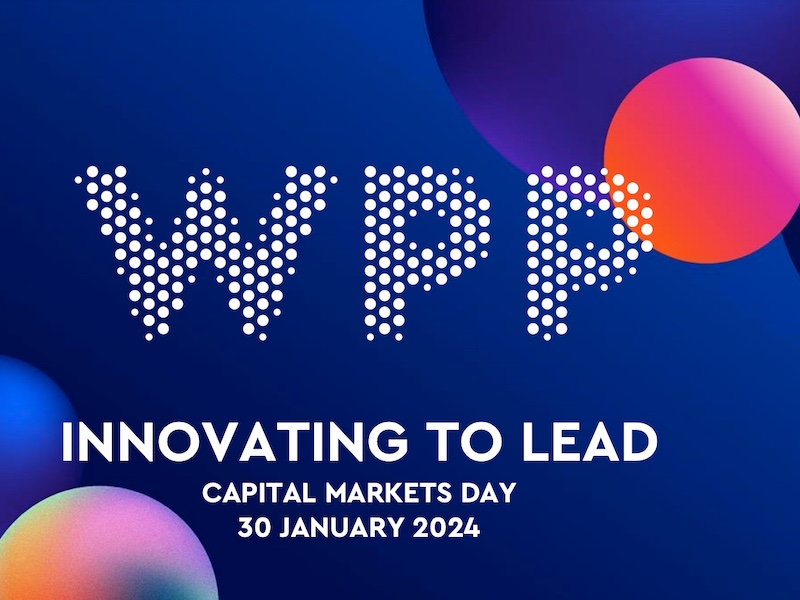Maja Pawinska Sims 30 Jan 2024 // 5:55PM GMT

LONDON — Speaking at WPP’s Capital Markets presentation today, WPP CEO Mark Read said Burson – the new name for the soon-to-be-merged BCW and Hill & Knowlton – would be a “top two global PR firm with a fantastic leadership team and a path to future growth”.
The description of Burson as “top two” appeared to confirm that the merged agency may not overtake $1bn-revenue Edelman, despite data from PR industry league tables, including PRovoke Media’s Global 250 ranking, indicating that Burson would be bigger than the independent global agency.
By comparison, the presentation underlined the number one market position of WPP's other major agency brands: AKQA, Ogilvy, VML, Hogarth and GroupM.
Read said establishing Burson as a “leading global strategic communications agency” was a key element of building “world-class, marketing-leading brands” – one of WPP’s four pillars to achieving its goals: “capture the opportunities offered by AI, maximise the potential of creative transformation and deliver faster growth, higher margins and improved cash generation.”
Outlining WPP’s broader business and financial plans, Read introduced Burson – which will have a team of 6,500 across 43 markets – as one of its six consolidated agency brands, which together generate 90% of WPP’s revenue.
He said: “The past three years have demonstrated the power of brands, creativity and investment in marketing to drive growth for clients and to build significant value. Research demonstrates that those companies with the strongest brands deliver the highest returns to shareholders.”
Read cited the merger of Finsbury Glover Herring and Sard Verbinnen to create FGS Global in 2021 as an example of a successful move that had “created a world leader in strategic communications”.
He also announced that an ongoing annual investment of £250m in data and technology to support WPP’s AI strategy was included in its 2024 financial plans, including the group’s AI-powered platform, WPP Open – which is already being used by group-wide clients including L’Oréal and Nestlé – and its 2021 acquisition of UK AI company Satalia.
“AI is transforming our industry and we see it as an opportunity not a threat. We firmly believe that AI will enhance, not replace, human creativity. We are already empowering our people with AI-based tools to augment their skills, produce work more efficiently and improve media performance, all of which will increase the effectiveness of our work. We also see opportunities to sell new AI-driven products and services to our clients and to capture more growth in areas like production.”
In answer to a question on how WPP will quantify the financial benefits of use of AI over time, Read said: “Technology creates as many jobs as it changes or destroys or alters. We’ve seen the power of what we’ve done to improve our win rate. I think clients would love to produce 1,000 more assets at a thousandth of the cost. AI will result in much more personalisation and volume of creative work – I don’t think it will be value–destroying, we’ll just see different pricing models.”
He also said the creation of Burson and VML – formed by the merger of Wunderman Thompson and VMLY&R last year – and the simplification of GroupM would lead to “growth and structural cost savings” as part of WPP’s plan to “execute efficiently to drive strong financial returns”.
Of WPP’s financial aims for its pure PR agencies – which include GCI Health and AxiCom as well as Burson and FGS Global – chief financial officer Joanne Wilson said: “Companies are facing an increasingly complex media landscape in which managing corporate reputation across varied groups of stakeholders has become more difficult and complex... I am confident that our PR agencies can deliver growth of mid-single digits over the medium term.”
The presentation cited medium-term growth targets of 4% for the PR group, but Wilson also said some of the group’s specialist agencies were doing much better, mentioning GCI Health as growing “in double digits”.
Wilson said in terms of structural savings from the Burson merger, the plans were “at an early stage” but “we’re confident we can deliver cost savings from combining back office infrastructure in each market, streamlining the front office and leveraging the global practices.” There was no specific reference to redundancies in the presentation.
Overall, WPP expects structural savings across the group to deliver annualised net cost savings of around £125m in 2025, with 40-50% of that saving expected to be achieved in 2024, and associated restructuring costs of £125m this year. The group is also targeting £175m gross savings from efficiencies across back office and commercial delivery.
It also updated its medium-term group targets for 2024: 3% like-for-like revenue growth on operating profit margins of between 16% and 17%.
WPP will report its 2023 results on 22 February and said it expects these to be in line with guidance, with revenue expected to be 0.9% across the group and margins of 14.8%.
All PRovoke Media’s coverage of the Burson merger can be found here.



































.jpg)

















